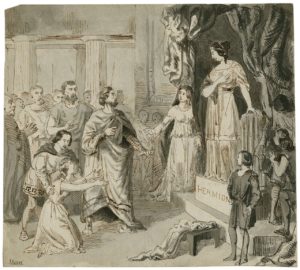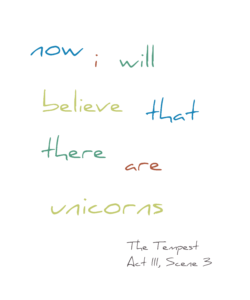I just finished Start with Why by Simon Sinek, a book I’ve seen recommended many times over the years but I finally got around to reading (well, listening to). The premise is so basic that I’m honestly surprised he got an entire book out of it.
It goes something like this – to succeed in business (and, by extension, in life) do not focus on what you are doing, and how you are doing it, but why you are doing it.
I guess some folks need that spelled out? I thought that was kind of obvious, it’s called being authentic and having personal integrity, isn’t it? If I tell you that I’m promoting a product because it will make your life better, I should actually believe that, I shouldn’t just be saying that because my marketing tests have shown that the phrasing “make your life better” converts higher than the comparable “improves your life”.
I don’t read books like this and think about my day job. I’m out of most of the decision-making in that area. No, I read books like this and think about Shakespeare. What do I do? I run a Shakespeare blog, trying to generate some degree of reputation on the subject, and occasionally attempt to turn it into a side hustle. How? By creating merchandise based on the original content we generate here, and by writing in a way that I feel presents the material in an approachable way to an audience not necessarily already being served.
What do I do? I run a Shakespeare blog, trying to generate some degree of reputation on the subject, and occasionally attempt to turn it into a side hustle. How? By creating merchandise based on the original content we generate here, and by writing in a way that I feel presents the material in an approachable way to an audience not necessarily already being served.
How? By creating merchandise based on the original content we generate here, and by writing in a way that I feel presents the material in an approachable way to an audience not necessarily already being served.
Why? See, I think there’s two answers here. One answer is, “Because I want more Shakespeare in the world. I want to walk down the street and see people with Shakespeare quotes on their t-shirts, or tattoos, or reading a Shakespeare-related book at the beach.” Why? Because I immediately feel a bond with that fellow human being, and that makes me happy. I immediately think of those people as smarter and more philosophically in touch with the universe, and that raises my standard toward the whole human race just a little bit. The more I get to experience that, the more optimistic I am about the people I haven’t met yet.
Or, “Because everybody wants to make more money.” Why? It’s not necessarily the amount of dollars, though that does help. It’s the direct connection to the process that does it for me. The feeling that I made the decisions (see above!), that whether or not the money comes in is based on things that I find important. Why? Because money means there’s something tangible at stake. You put money into these things, and hope to get more money back in return. That signifies success. Why? Because for people to spend money because of the value they find in something that I created, it means that what is important to me is also important to them. That makes me happy, because that means that I am adding value to the world.
What about you? Why do you Shakespeare?

 We recently discovered that a family friend has cancer. Luckily (happily? thankfully? not sure what the word is to use there) it is a reasonably treatable one with a life expectancy measured in decades. But, you know. Still.
We recently discovered that a family friend has cancer. Luckily (happily? thankfully? not sure what the word is to use there) it is a reasonably treatable one with a life expectancy measured in decades. But, you know. Still. Since I was looking for new t-shirt designs anyway, we designed our own “
Since I was looking for new t-shirt designs anyway, we designed our own “ I tried that one once, but couldn’t get past the joust at the beginning. You remember that part in the original text, right?
I tried that one once, but couldn’t get past the joust at the beginning. You remember that part in the original text, right?